C6.17 Accessing Research via Sci-Hub¶
Sci-Hub Unblocked: To Celebrate Its 10th Anniversary on September 5th, Alexandra Elbakyan Will Add Over 2.33 Million New Articles to Sci-Hub. The Sci-Hub database already contains nearly 88 million free research papers. Sci-Hub will implement 6 improvements: 1. Add keyword and topic search functions; 2. Introduce an AI-driven engine; 3. Fully open-source Sci-Hub; 4. Make Sci-Hub legal; 5. Expand the collection of papers to include all published works; 6. Launch a mobile app.
How to Use Sci-Hub to Download Academic Papers for Free? What If You Have Neither a URL nor a DOI?
I Can’t Believe I Have to Pay to Download My Own Paper!
First of all, Sci-Hub is a highly recommended online academic database for writing papers and conducting research. Anyone can download free academic papers and other materials on it.
The establishment of Sci-Hub has been enthusiastically embraced by academic communicators, especially students.
The legend goes that Sci-Hub was founded like this: In 2011, a Kazakhstani graduate student named Alexandra Elbakyan found that each paper download cost tens of US dollars while conducting research and writing papers (similar to well-known websites like CNKI, where articles require payment, and even downloading your own articles costs money). Since conducting a research project and writing a paper required spending hundreds or even thousands of US dollars on finding and downloading literature, the student got angry—why should there be such high fees, and who paid the authors? She then resolutely founded Sci-Hub, aiming to provide free access to various paid papers and literature on other platforms for students around the world.
Because this move touched the interests of certain groups, the Sci-Hub website is often blocked, including its social media accounts. In January 2021, the Twitter platform suspended Sci-Hub’s account on the grounds that it hosted pirated papers. Therefore, the website’s URL frequently changes, like guerrilla warfare, switching to a new domain name after a period of time.
Sci-Hub is currently the first known website to provide a large number of free paid academic papers. As of 2017, a researcher from the University of Pennsylvania found that the website had as many as 81.6 million papers, accounting for 69% of all academic papers, which can basically meet most paper needs.
So how to use Sci-Hub?
First, visit one of the following links:
https://sci-hub.se
https://sci-hub.st
https://sci-hub.do
https://sci-hub.shop
https://scihub.wikicn.top
These links are still valid as of now, but they may change at any time. It is recommended to use a reliable VPN (you know the auxiliary tool). If you still can’t access them, search for updated links on Google.
Note: All information here is as of February 11, 2021. The above URLs have been stable for a long time, but there is no guarantee they won’t change.
Find the article’s URL or DOI.
A URL is a web address, and a DOI is a string of numbers or letters starting with "10.".
Note: Some articles do not have a DOI starting with "10.", or the DOI is hidden in the page’s source code. You can use the search function to find it.
For example, I randomly visited a website that requires payment to download articles and literature:https://www.sciencedirect.com
I planned to download an article titled "Flexibility in marketing & sales interfacing processes" after finding it on ScienceDirect.
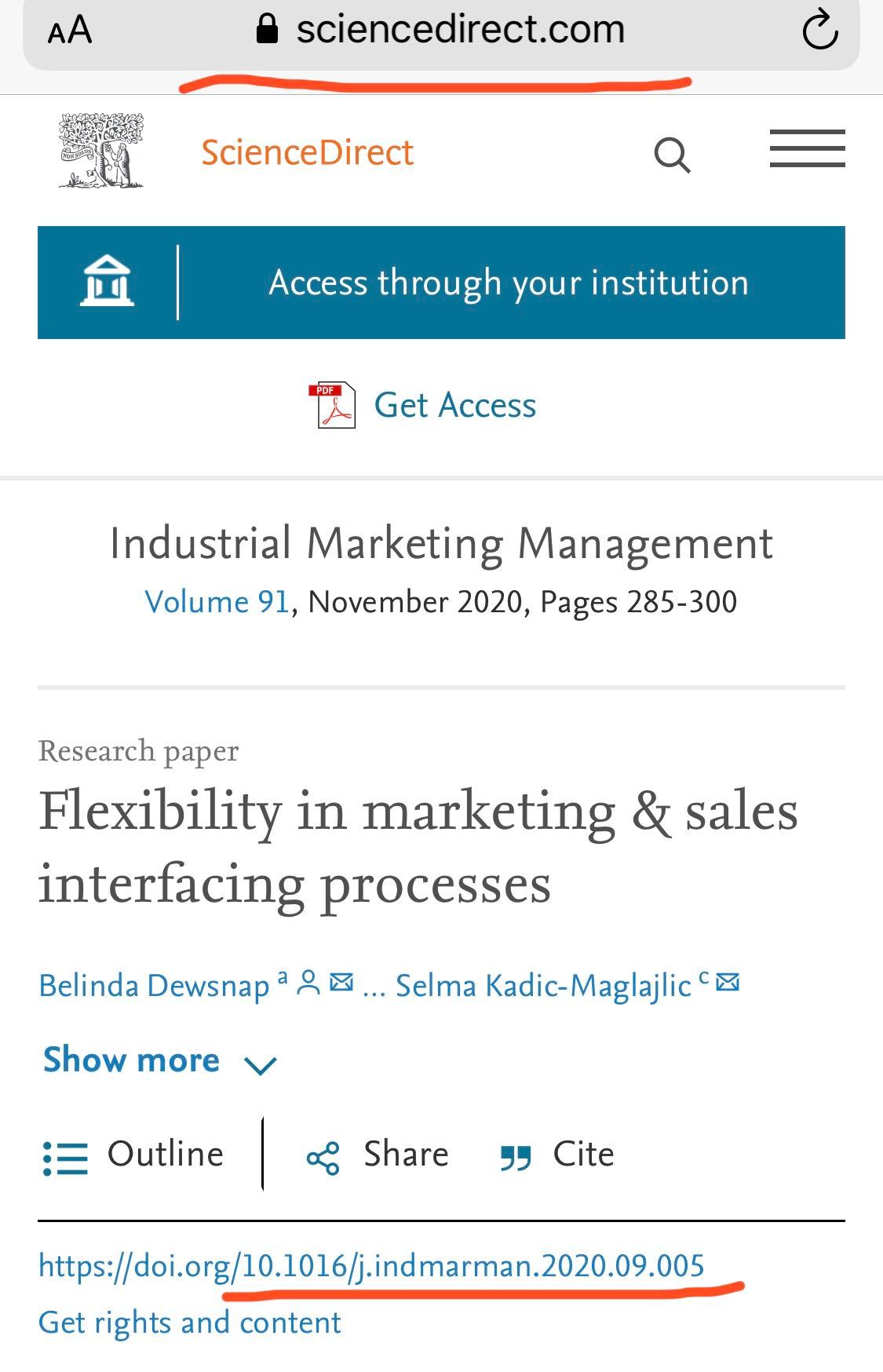
(1) Find the article's URL:https://www.sciencedirect.com/science/article/abs/pii/S0019850120308361
(2) Or find the article's DOI, such as:10.1016/j.indmarman.2020.09.005
Enter either of the above into the search box on Sci-Hub, as shown in the picture below.
URL
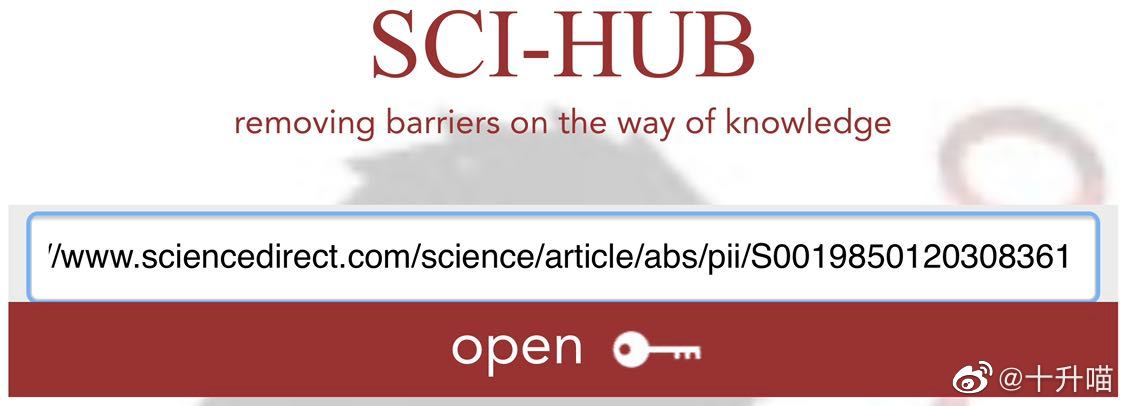
DOI
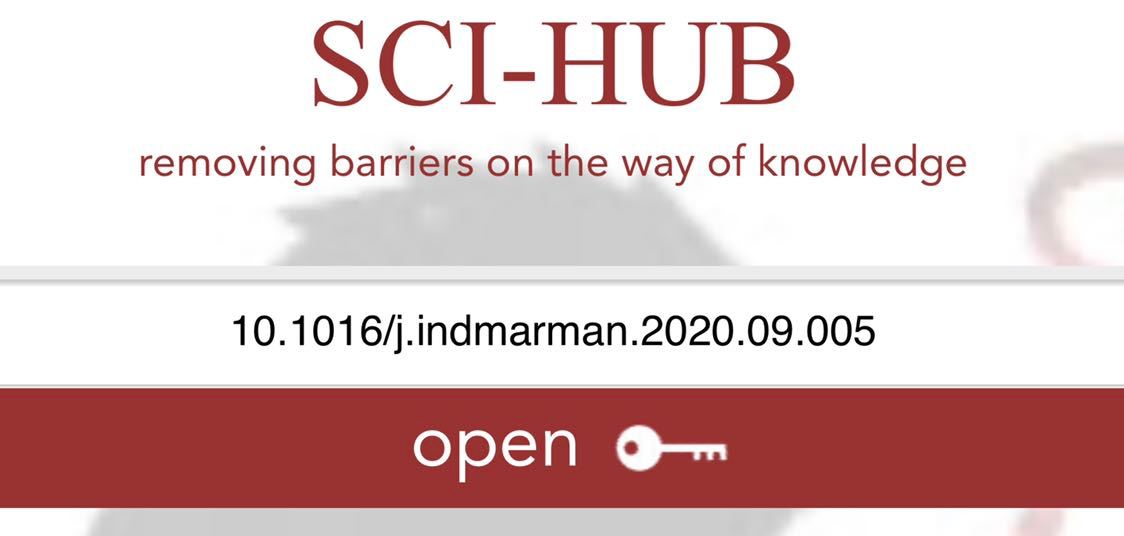
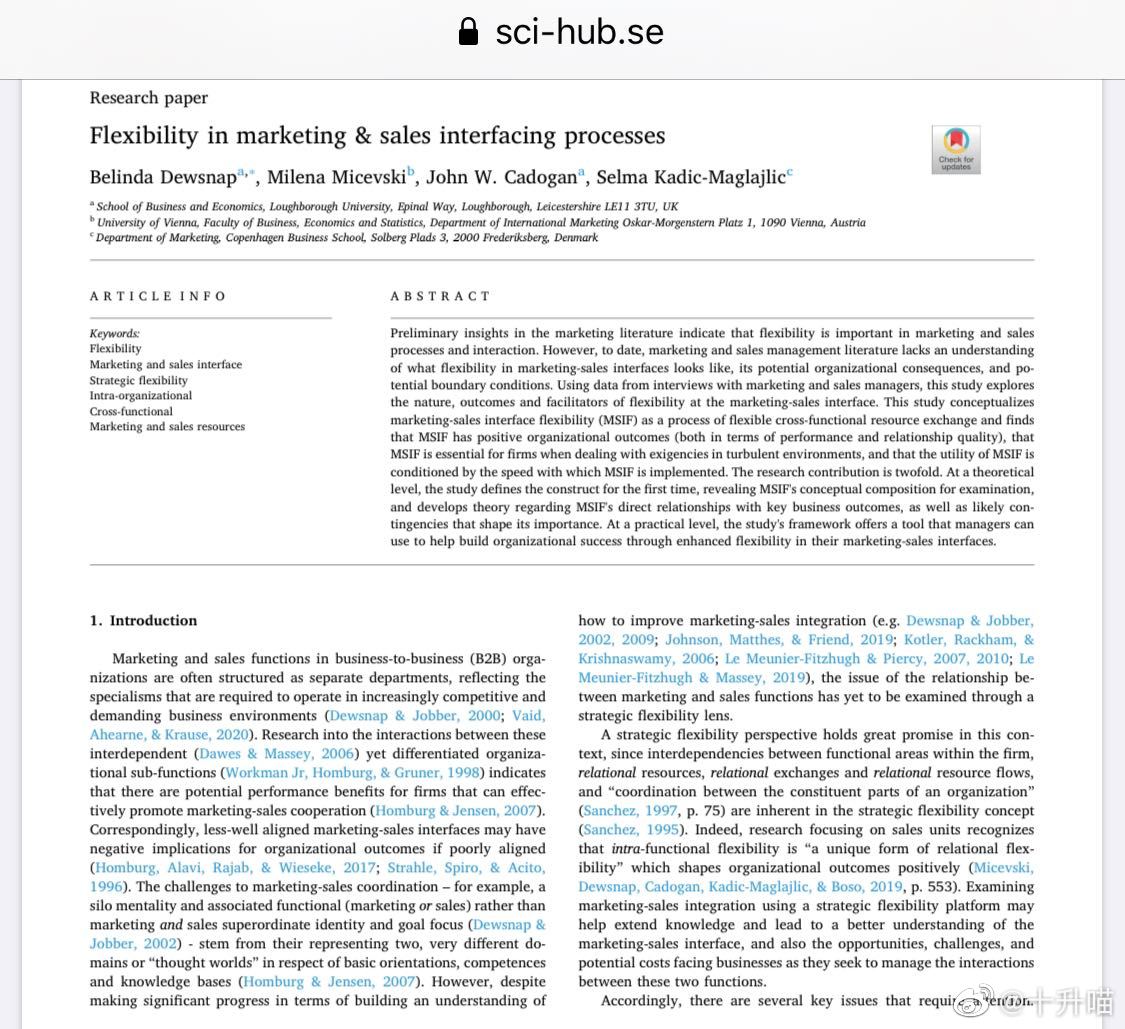
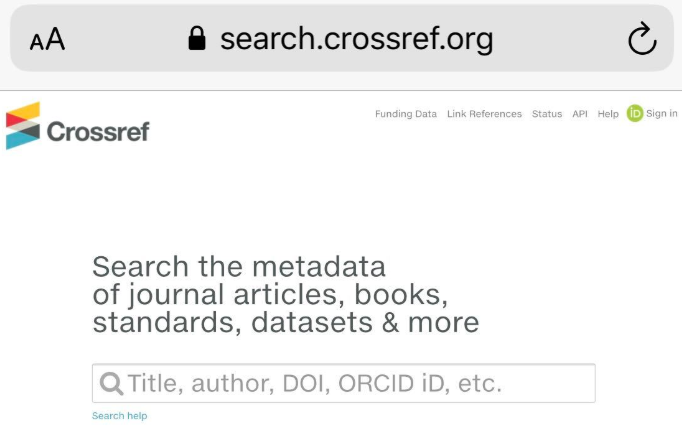
Suppose I’m still looking for the earlier article from ScienceDirect, "Flexibility in marketing & sales interfacing processes," and neither its URL nor DOI is available. In this case, visit https://search.crossref.org, enter the article title, and you’ll find the article’s DOI as shown in the picture below.
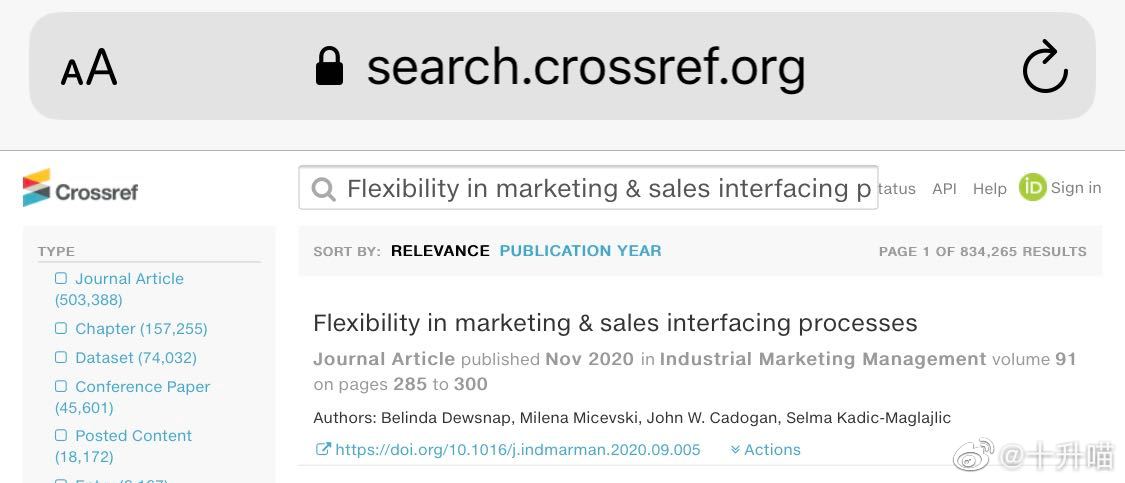
Okay, have you got it? Isn’t it super easy? And Sci-Hub is really useful—undergraduates, master’s students, doctoral students, etc., can all access paid content for free. Here, I wish you all a prosperous Year of the Ox!